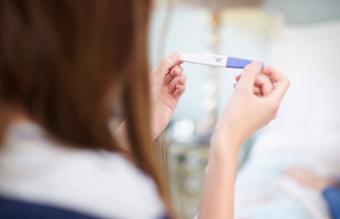
If you have regular periods, it is typically a good sign that you're ovulating, which is essential if you are trying to get pregnant. However, if you have irregular periods or certain menstrual conditions, your ovulation and your overall fertility could be affected.
Menstruation As a Sign of Fertility
Having a regular menstrual cycle is associated with normal reproductive health. If you're experiencing changes to your menstrual cycle or have always had irregular cycles, this may indicate a problem that can interfere with your ability to conceive.
Can You Be Infertile but Have a Period?
You can have a period and still be infertile. The fact that you are menstruating doesn't necessarily mean that you can conceive, especially if your cycles are irregular.
- If your cycles are longer than normal (more than 35 days), shorter than normal (less than 25 days) or nonexistent, your ovulation will most likely be affected.
- You may not ovulate every month, you may not have the ability to pinpoint when ovulation will occur, or you may not ovulate at all.
- Not knowing when or if you ovulate can cause great difficulty in getting pregnant.
Even if you experience regular cycles, you may still have problems with ovulation or you simply may not ovulate which is a condition known as anovulation. Other menstrual disorders that can affect your fertility include:
Oligomenorrhea
Oligomenorrhea is when your periods are sporadic, infrequent and you may even skip months entirely. When oligomenorrhea occurs in women, it may be caused by various problems, such as PCOS (polycystic ovarian syndrome) or a hormone imbalance, which can throw off the normal menstrual cycle. Oligomenorrhea may also cause problems with ovulation. The lack of a regular menstrual cycle can indicate a fertility problem that means it will be more difficult for you to conceive. In a situation where a woman only ovulates a few times per year, her chances of getting pregnant are greatly reduced.

Amenorrhea
If your periods stop completely and you have missed three periods in a row, this is known as amenorrhea. There are a number of reasons why a woman may stop menstruating and the doctor will need to rule out pregnancy first. If the pregnancy test is negative, then other possibilities for the lack of menstruation will be considered.
- Hormonal imbalance from conditions such as PCOS or thyroid disorders can affect your periods.
- Excessive stress and extreme athletic activity can cause a woman to miss periods.
- Losing a lot of weight rapidly may also interfere with the monthly cycle.
- Taking some types of medications (narcotics and some drugs used to treat psychiatric conditions) may cause amenorrhea.
Amenorrhea can cause complications with fertility. If you are not having menstrual periods or ovulating, you will not get pregnant.
Menorrhagia
Menorrhagia is heavy bleeding or prolonged bleeding during your periods. These heavy periods can indicate an underlying problem that can affect your fertility which include:
- Fibroids in your uterus
- Polyps in your endometrial lining
- Hormonal imbalance
- Dysfunction of ovaries
Trying to Get Pregnant
You may not think much about your menstrual cycle and may only become concerned when you are considering starting or adding to your family. Having an irregular cycle and missing periods may just be part of your normal routine. However, your fertility may be affected and you should discuss this with your doctor.
Determining if Fertility Treatments Are Needed
If you and your partner are having difficulty getting pregnant, you will need to consult with your doctor or a fertility specialist. Typically, if you have not become pregnant and you're under 35 years old and have been actively trying for pregnancy for 1 year or are over 35 years old and been trying for 6 months, you may need fertility treatment.
What to Expect
Your doctor will thoroughly review your health history. He will likely have you keep track of your menstrual cycles to assess if your periods are regular or irregular and determine if you're ovulating. He may order further testing to evaluate your uterus, ovaries, fallopian tubes and your partner's sperm. Your doctor will be able to assess your fertility issues and determine if fertility treatments are necessary or if you need to be seen by a fertility specialist (reproductive endocrinologist).
Be Evaluated by Your Doctor
Understanding your menstrual cycle is crucial for your reproductive health. If you experience irregular periods, it is important that you be evaluated by your doctor. Since irregular periods can directly affect your fertility, it is best to consult your doctor even prior to planning for pregnancy. There could be an underlying problem that may need to be treated, and if left untreated could possibly cause infertility. The sooner any potential problems are taken care of, the better your chances are of becoming pregnant.







